Imagine you’re an Avengers super-fan in a universe where the Avengers actually exist. You think you’re just a first-generation kid getting through high school with what feels like a child-like vice for superheroes in an attempt to belong. Then, you obtain powers of your own that may render you as extraordinary as your Avenger role model.
This is the story of Kamala Khan (a.k.a ‘Ms. Marvel’).
The Disney+ series season finale aired today, marking the sixth and final episode of the MCU’s latest series addition. ‘Ms. Marvel’ follows the story of its youthfully dynamic protagonist Kamala, played by Iman Vellani, as she forays from Captain Marvel (Brie Larson) mega-fandom into unleashing magical powers of her own. The series arguably positions Kamala as a meta audience surrogate of Avengers fandom. We see ourselves in Kamala; she sees herself in Captain Marvel.
The series has been lauded for its Muslim representation, centering Kamala as a Brown Muslim teenager of Pakistani origin in Jersey City. Mashallah, a superhero who says ‘Mashallah’.
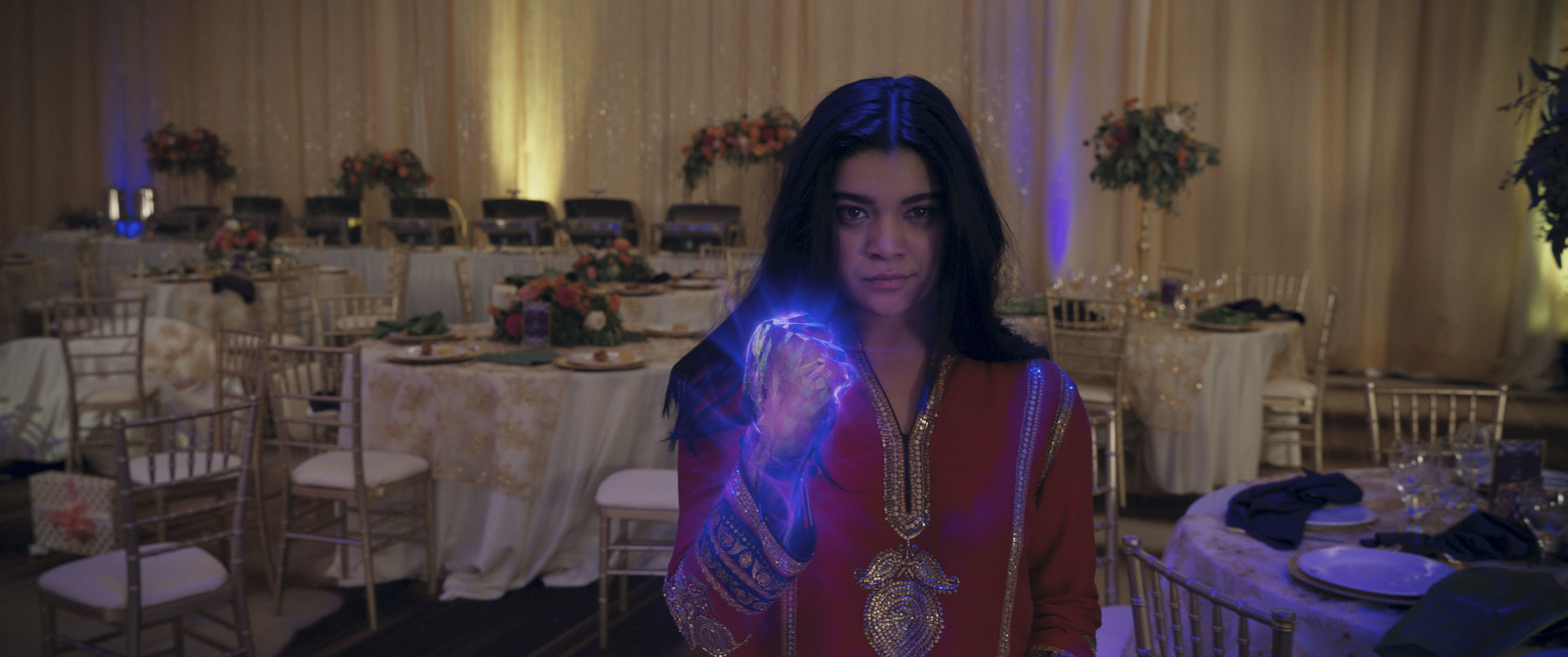
Positive, proud and loud Muslim representation has been scarce in prominent Western media. Off the top of my head, I can only remember one such similar series titled ‘Little Mosque on the Prairie’, a hilarious Canadian sitcom about a Muslim community settling in Saskatchewan. The fact that I can only muster the memory of this one 2007 sitcom, albeit a great one, says a lot about how underrepresented Muslims are, particularly in Hollywood.
As a Muslim who also partially grew up in the United States, the words ‘Mashallah’ and ‘Bismillah’ were always wholly personal to me and exclusively tethered to home, or when I happened across another sporadic Muslim at school. Hearing it so casually uttered within the MCU showed me it can carry more universality and recognition than that. We just needed the mainstream representation for it.
Does ‘Ms. Marvel’ exclusively cater to a Muslim audience? The short answer: no. Besides the representation that is integral to the core character’s identity, ‘Ms. Marvel’ stands quite firmly on its own two feet in its right as a Marvel series. That, in itself, is essential to seamless and effective media representation.
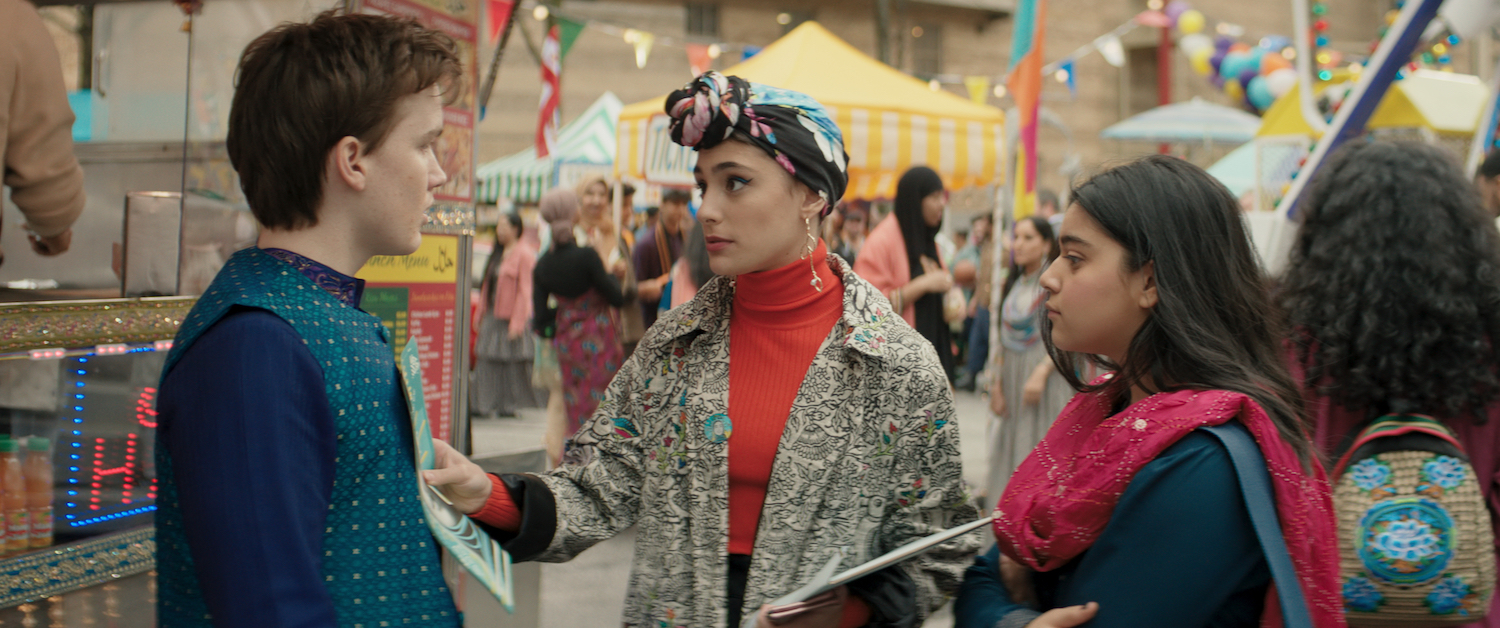
Stop reading here to avoid spoilers! Below, I discuss key plot points which, you guessed it, include SPOILERS. My accountability for this officially ends here.
Ms. Marvel’s humble origins
It all started when 16-year-old Kamala attempts to escape her parents’ strict grasp to attend ‘AvengerCon’ and showcase her Captain Marvel cosplay. During the first episode, Kamala receives a package from her grandmother, Sana (Samina Ahmed), which contains an unassuming bangle that Kamala’s mother, Muneeba (Zenobia Shroff), dismisses as “junk”. All chaos unfolds when Kamala sneaks out to attend ‘AvengerCon’ and the bangle appears to attribute some cosmic powers to its wearer, our titular character.
She basically ends up with some powerful, albeit confusing, abilities including extending limbs, the ability to produce icy magical shields and platforms at will, and giant fists.
We later learn that the bangle originally belonged to Kamala’s mysterious great-grandmother Aisha (Mehwish Hayat), a ‘Djinn’ (an invisible Muslim spirit or an enhanced individual in the MCU), who was exiled from the Noor dimension. The other ‘Djinn’, or ‘ClanDestines’, introduced in ‘Ms. Marvel’ are revealed to be the series’ antagonists. Or so we think.
It’s all still a little unclear with the plethora of characters introduced. First, we have the Department of Damage Control (DDC) trying to subdue Kamala, the ‘Djinn’ who are also ‘ClanDestines’, and then the ‘Red Daggers’ who try to protect Kamala from the ‘ClanDestines’. Oh, and Najma (Nimra Bucha), one of the main ‘ClanDestines’ and mother to Kamran (Rish Shah), apparently dies while piercing the Veil to the Noor dimension. And she transfers Kamala-like powers to Kamran before doing it. Yes, it’s a lot.
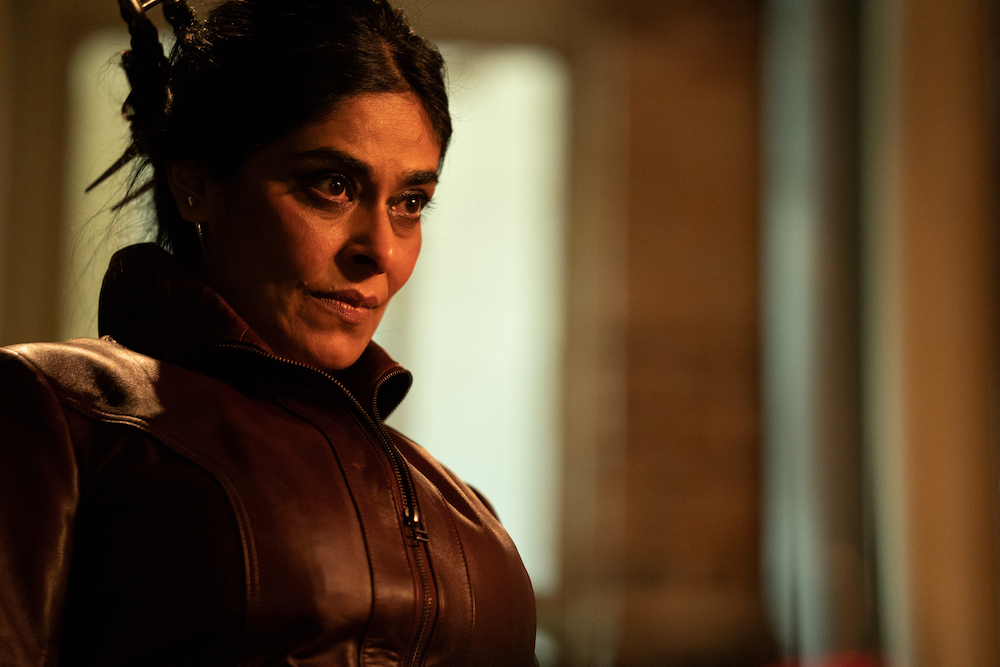
Who is the big bad wolf?
In six episodes, the number of characters introduced coupled with the lack of a clear antagonist slightly muddled the message. Surprisingly, the ultimate obstacle that Kamala faces in the finale is actually the DDC, quite a mundane villain to draw the curtain.
But there are so many questions left unanswered in this tension. Why is the DDC shooting at children? Why are they so hell-bent on capturing Kamala and Kamran, now two enhanced individuals very similar to the Avengers that are so beloved in this world? Did they actually do that much “damage” to warrant such antagonization? Perhaps they should focus on the Hulk who destroyed entire cities as a result of his anger, a governmental divide addressed in ‘Captain America: Civil War’ sans Hulk.
Perhaps it is an on-the-nose yet far-from-the-nose allegory for Islamaphobia. The DDC attempts to enter the Mosque several times to search for Kamala, stubbornly flouting all respect for the space. They bust through the doors without a warrant, refuse to take off their shoes, and sass out the occupants who are more than accustomed to such suspicion by authorities as they hold up their IDs before even being asked.
All in all, their goal is unclear but their unexplained disdain for Kamala, coupled with their clear search for someone Brown, is clear as day. If it was actually an allegory for Islamaphobia or racism, perhaps it could have been fleshed out more.
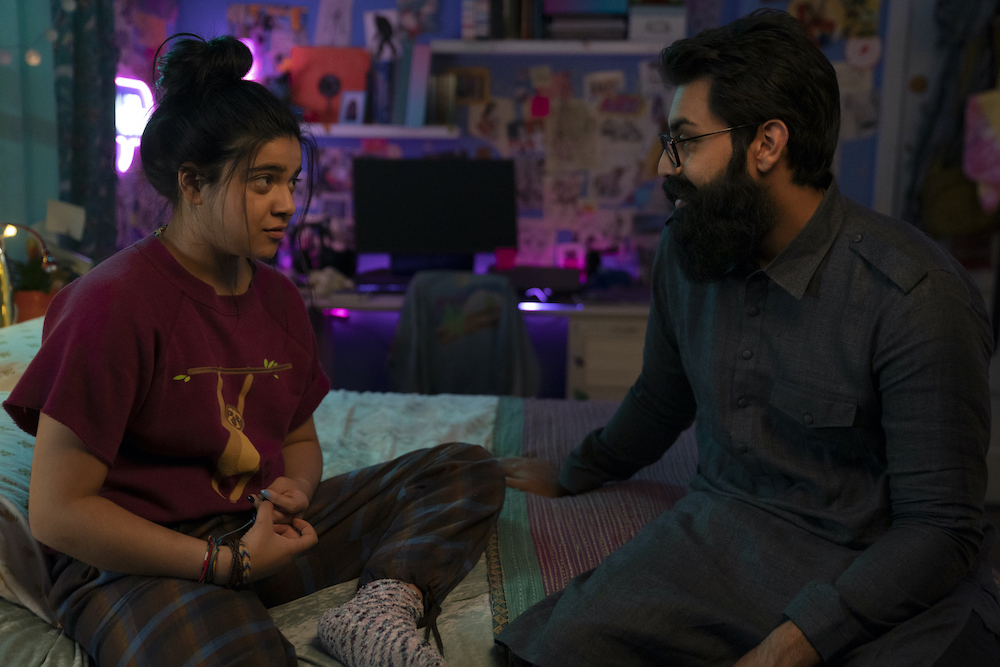
From quirky teenage girl to generational trauma
A more poignant exploration of racial issues arises when Kamala visits Karachi in Pakistan. There is a clear, almost daunting shift in tone from goofy comedy to an exploration of trauma by virtue of the Partition.
“Every Pakistani family has a Partition story, and none of them are good,” Kamala’s brother, Aamir (Saagar Shaikh), says in episode two.
Kamala goes back in time to the train where her ‘Nani’ (grandmother) was separated from her mother, Aisha. It is revealed that, somehow, Kamala was the one that helped her Nani board the train with Nani’s father using “magic”. It is a deeply sorrowful story as Aisha dies trying to protect her child.
In real-time, Kamala brings back the only photo that her Nani will ever possess of her parents, as she previously painted them from memory. We see the three generations of women, Kamala, Muneeba (Kamala’s mother), and Sana share a touching moment together as they begin to understand one another.
Generational trauma is a big concept to unpack. Again, it felt like six episodes and a sharp contrast in tone weren’t enough to fully flesh this story out. This could have been a much more compelling origin story to Kamala’s powers, and one unique to the MCU.
Besides the intentional or unintentional flip in tone, I really enjoyed this exploration of Kamala’s ancestral past. It’s a historically accurate portrayal of racial issues that do not denigrate its core character’s identity in a Western context. Even if she does say she’s just a, “Brown girl from Jersey City,” the story isn’t centered around a ‘woe-is-me, I’m Brown in a town full of white people’ plotline, which is incredibly refreshing to say the least.
Where do Kamala’s new-found powers come from, exactly?
The ancestral connection to Aisha implies that the power came from within Kamala all along, rather than a fluke accident by donning the bangle. In the finale, Bruno reveals that he looked into Kamala’s genetic make-up as compared to the rest of her immediate family. He concludes that she possesses a unique mutation, but this isn’t explored any further.
This reminds me of an exchange between Peter Parker and Tony Stark (a.k.a Iron Man) in ‘Spider-Man: Homecoming’: “If you’re nothing without the suit, then you shouldn’t have it.”
Does Kamala really need the equivalent of the “suit”, her bangle? What if we had put the bangle on Bruno, or Aamir, as he also questioned. What would happen then? Bruno explains that the bangle only activated what was already within Kamala rather than giving her external powers. Still, the story might have benefitted from testing this out on-screen.
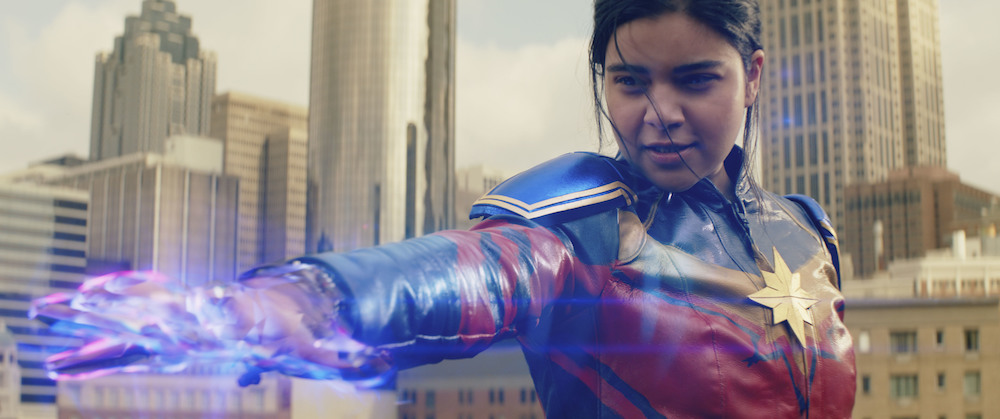
Ms. Marvel isn’t just a young Captain Marvel
Ms. Marvel isn’t officially dubbed ‘Ms. Marvel’ until the finale. Her father, Yusuf, tells her why they named her ‘Kamala’, revealing that it actually means ‘Marvel’ in Urdu.
“I share a name with Carol freakin’ Danvers?” exclaims Kamala.
Watching the series, you’d think she’d come to the title by virtue of her love for Captain Marvel, a Captain Marvel underling, if you will. It was a pleasant twist to learn that the name, much like her powers, came from within her own roots this entire time.
Although the idea of meta representation is appreciated, it was nice to learn that the writers established Kamala in her own right as an individual, despite her love for her role model. It strengthens the character as more than just a quirky young sidekick or side-story to the main ‘Captain Marvel’, and grounds ‘Ms. Marvel’ as its own unique story.
Perhaps what hasn’t been fleshed out in the six-episode series will serve as a set-up for Ms. Marvel’s next official appearance in ‘The Marvels’, a film set to premiere in 2023. It will also star Brie Larson as ‘Captain Marvel’ and WandaVision’s Teyonah Parris as Monica Rambeau.
Brie Larson also made an appearance in the post-credits scene of the finale, as Kamala disappears and Carol Danvers dazedly manifests in her place. As usual for a Marvel post-credits scene, this is left unexplained. I highly look forward to seeing how the character will play out in the broader MCU.
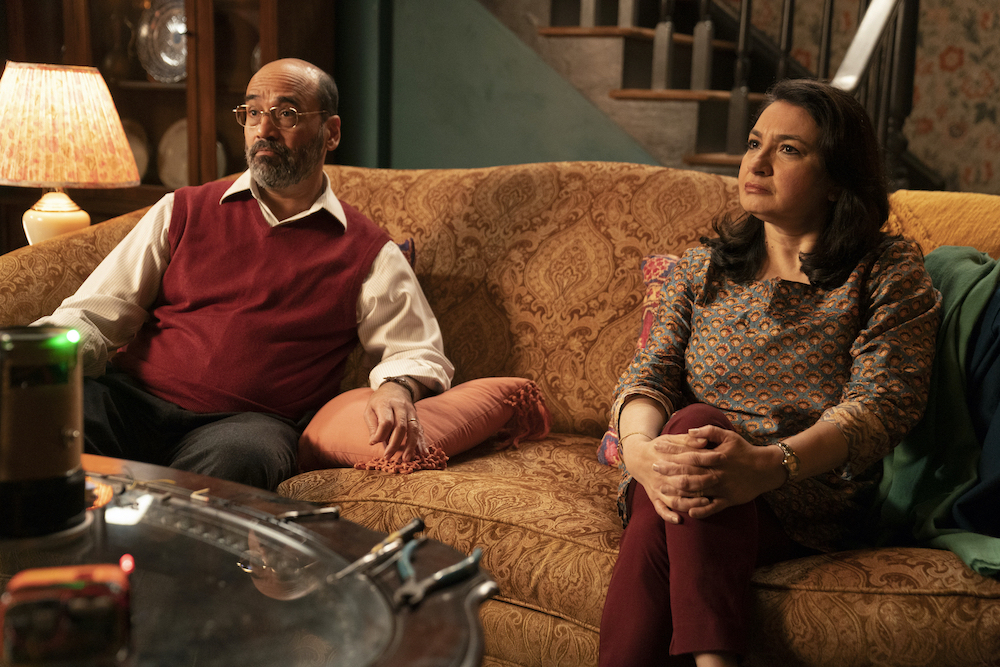
Conclusion
All in all, one thing stands: representation is pivotal both in front of and behind the camera. I doubt we would have seen poignant and deeply personal stories of the Partition, and an accurate portrayal of a Pakistani diaspora teen, had the writers not understood her core identity.
I appreciate the writers, Bisha K. Ali and Sana Amanat, for giving Kamala arguably the most important magical ability of all: dimension.
We so often see showrunners check the proverbial box of representation with a one-dimensional character possessing no real personality of their own. It is time for these characters to be properly fleshed out like any other complex main character. Iman Vellani brought an incredibly refreshing and charming edge to Kamala that had me hooked from start to finish. I didn’t just like her because I could relate to her, I liked her because she was funny. Simple as that.
This has been proven true in the broader MCU and Egyptian context. Yesterday, ‘Moon Knight’, which boasted 17 Egyptian members in its cast and crew, earned the most Emmy nominations of any 2022 Marvel series. Although the show was lauded in the Egyptian context for its representation, it was also appreciated globally for standing firmly on its own two feet regardless.
‘Ms. Marvel’ definitely left a lot to be desired and undesired, frankly. Unless they served as an important set-up for her future appearances, the plethora of characters with unclear motives was overwhelming. Six episodes are not sufficient enough to introduce three different groups of antagonists, or non-antagonists, only for their motives to be left unclear and insignificant. In a realm full of cosmic powers and immortal beings from another dimension, you’d expect the final boss to be anyone other than a simple gun-wielding government bureau in America.
Otherwise, ‘Ms. Marvel’ was good fun. Vellani sparkled as Kamala, and her entire family was just as delightfully amusing. It was nice to hear the words ‘Mashallah’ and ‘dayum’ strewn in the same sentence, and I’d definitely want to revisit this character, albeit under different circumstances.
Listen to a ‘Pop and Prejudice’ podcast episode on ‘Ms. Marvel’ co-hosted by the author here.
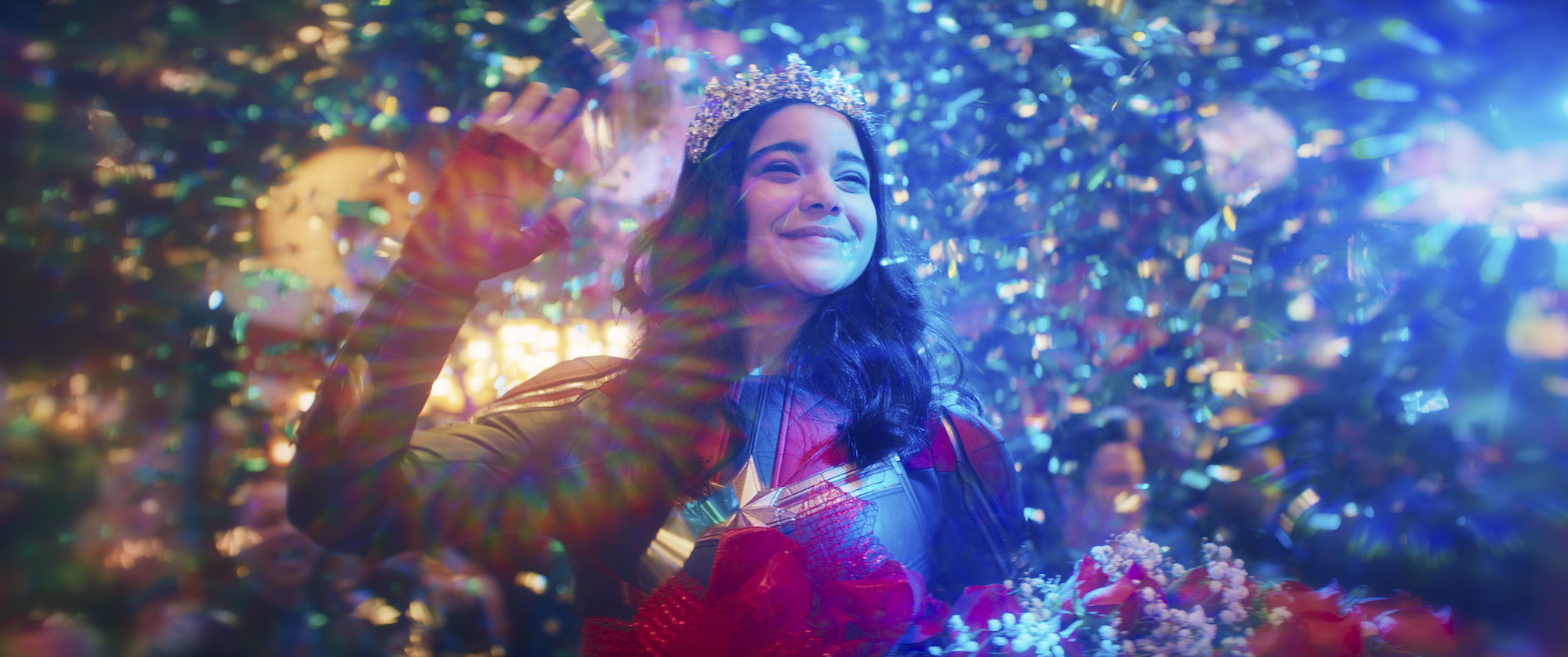





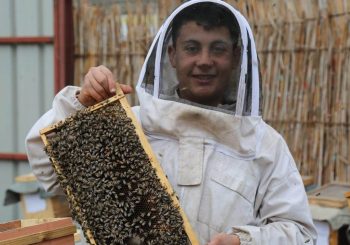
Comments (0)